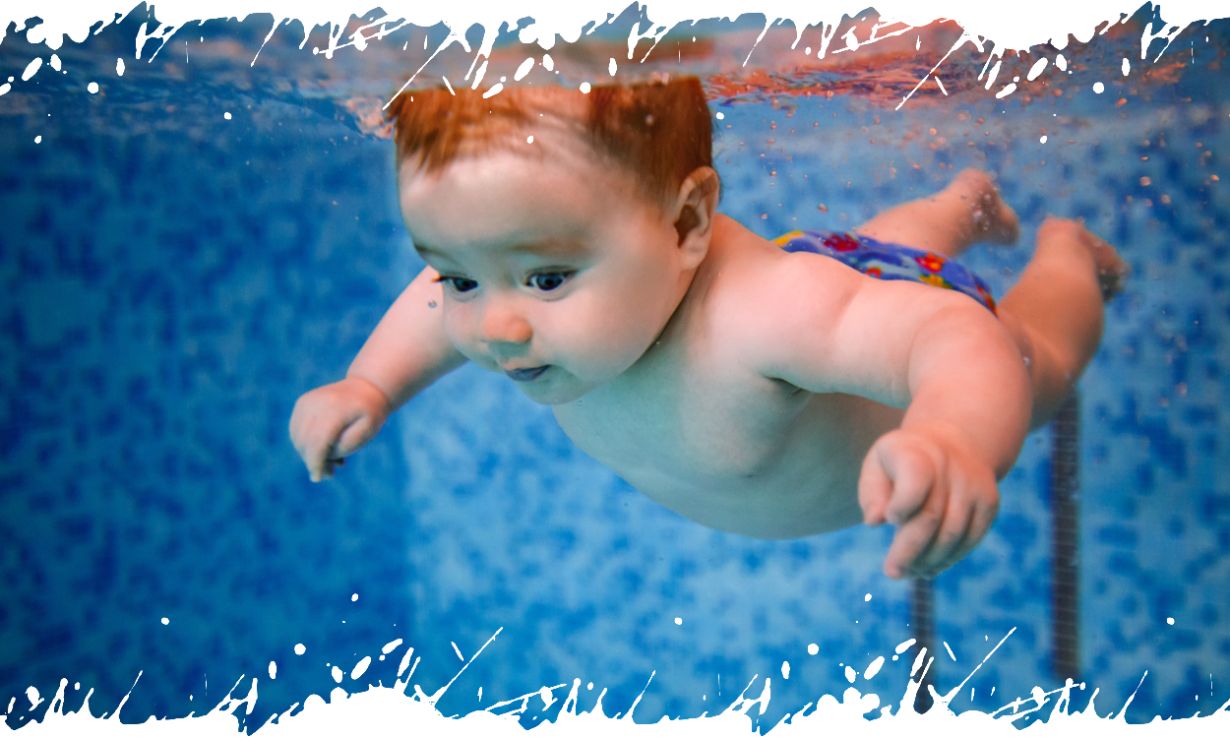
Babies
Swim
Lessons
Welcome to the Swimming Training Section for Babies. In this section, our programs are designed for Babies aged 3 months to 1 year, allowing them to start learning to swim at an early age and benefit from its numerous advantages from a young age.
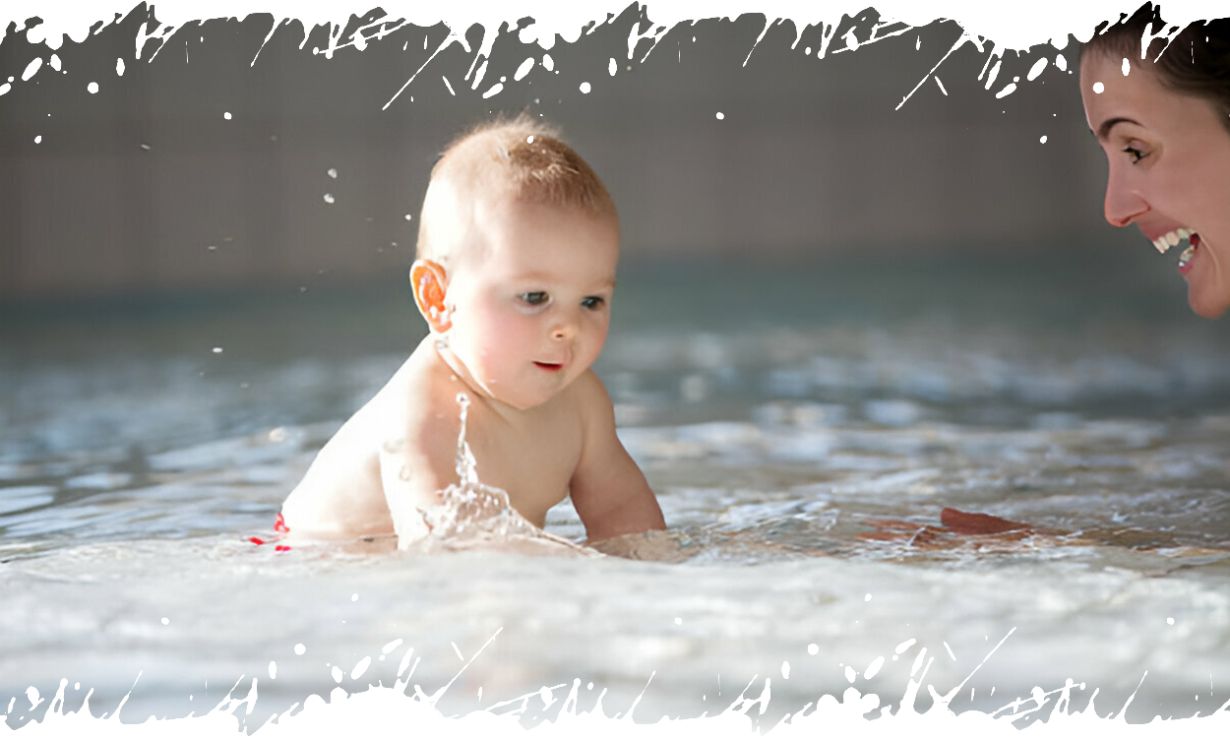
11 benefits of swimming for Babies and more:
- Enhances motor and cognitive development of the baby.
- Improves sleep quality and relaxation for the baby.
- Promotes overall physical fitness through aquatic activity.
- Enhances balance and motor coordination.
- Boosts social interaction skills through interaction with water and caregivers.
- Provides a sensory-rich experience that aids in developing the baby’s senses.
- Builds confidence and independence in the water.
- Strengthens the immune system and overall health of the baby.
- Boosts the immune system.
- Provides an opportunity for physical interaction with parents or instructors.
- Enhances emotional bonding and positive interaction between the baby and caregivers during aquatic activities.
- Reduces the risk of obesity later in life.
- Promotes water independence and personal safety.
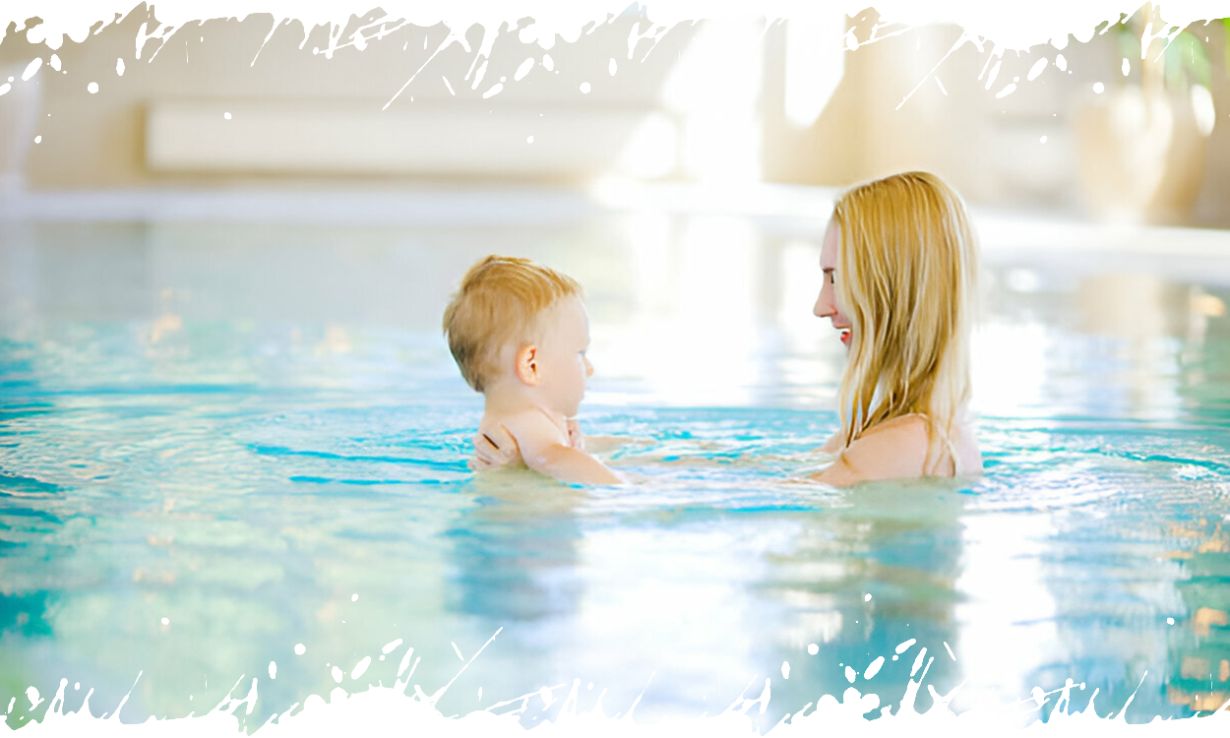
In this section, your baby will learn:
- Water Adaptation: Helping children feel comfortable and relaxed in the water through fun water games and activities that encourage them to enjoy being in the water.
- Breath Control: Teaching infants how to hold their breath when their faces are submerged in water. We use gentle and safe techniques to ensure they learn how to handle water with confidence and without fear.
- Basic Survival Movements: Enhancing the ability to balance and rotate in the water. This includes learning basic movements like floating on the back and stomach, and coordinated leg movements.
- Motor Interaction and Stimulation: Using interactive games and activities to stimulate movement within the water. This includes playing with balls and water toys, which helps develop motor coordination.
- Family Bonding and Communication: Strengthening the bond between parents and child through joint activities in the water. These activities not only enhance swimming skills but also reinforce the parent-child relationship through teamwork and continuous encouragement.
- Confidence Building: Through achieving small and gradual steps, children gain self-confidence and feel a sense of accomplishment with every progress they make.
- Water Safety: Teaching the basics of water safety to ensure that the child and parents know how to handle water safely. This includes recognizing hazards and how to avoid them.
- Sensory Development: Improving senses through interaction with the aquatic environment. Water contributes to the development of touch, balance, and sensory response.
- Mental Stimulation: Providing simple and stimulating challenges for children in the water to encourage mental growth and creative thinking.
- Physical Fitness: Promoting physical fitness through continuous activity in the water, which helps strengthen muscles and improve overall health.
- Interaction with the Environment: Introducing children to a new and different environment, which enhances their exploration and confidence in dealing with new experiences.
- Promoting a Healthy Lifestyle: Instilling a love for physical activity from an early age, which encourages adopting a healthy lifestyle in the future.
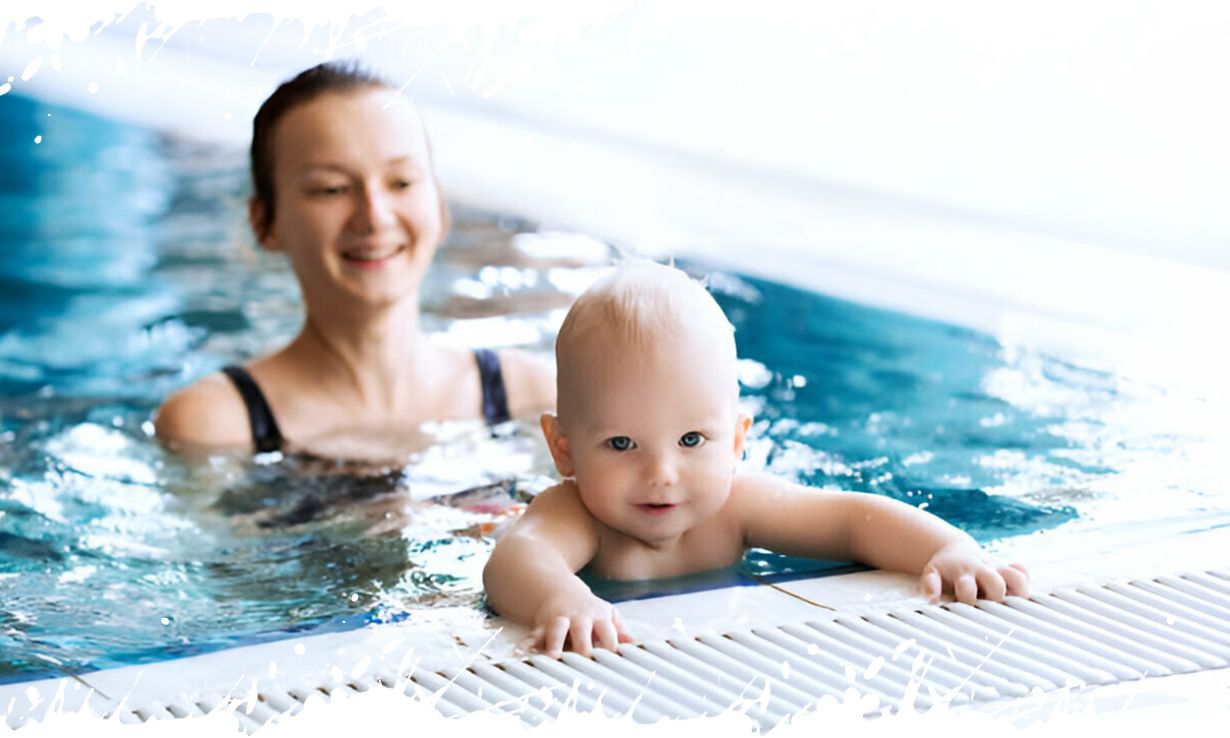
Training curriculum
When designing a swimming training section for babies, our focus is on introducing fundamental skills in a safe and enjoyable manner. Here are the key elements of our training curriculum:
- Water Familiarization and Sensory Experience: Lessons begin with gentle introduction to water, gradually acclimating the child in a natural way.
- Getting Used to Submersion: Gradually, the infant learns to handle submersion with the help of the instructor and specific techniques.
- Basic Movements: Teaching basic swimming movements such as floating, simple arm movements, and playful underwater activities.
- Water Safety: Teaching basic water safety principles, such as returning to the shore or edge, and understanding risks and emergency procedures.
- Play and Enjoyment: Integrating learning through play and ensuring swimming experiences are positive and enjoyable for babies.
- Continuous Assessment: Regularly monitoring infants’ progress to ensure ongoing development and improvement.
These elements are crafted to provide a nurturing and positive introduction to swimming for babies, fostering a lifelong enjoyment and comfort in the water.
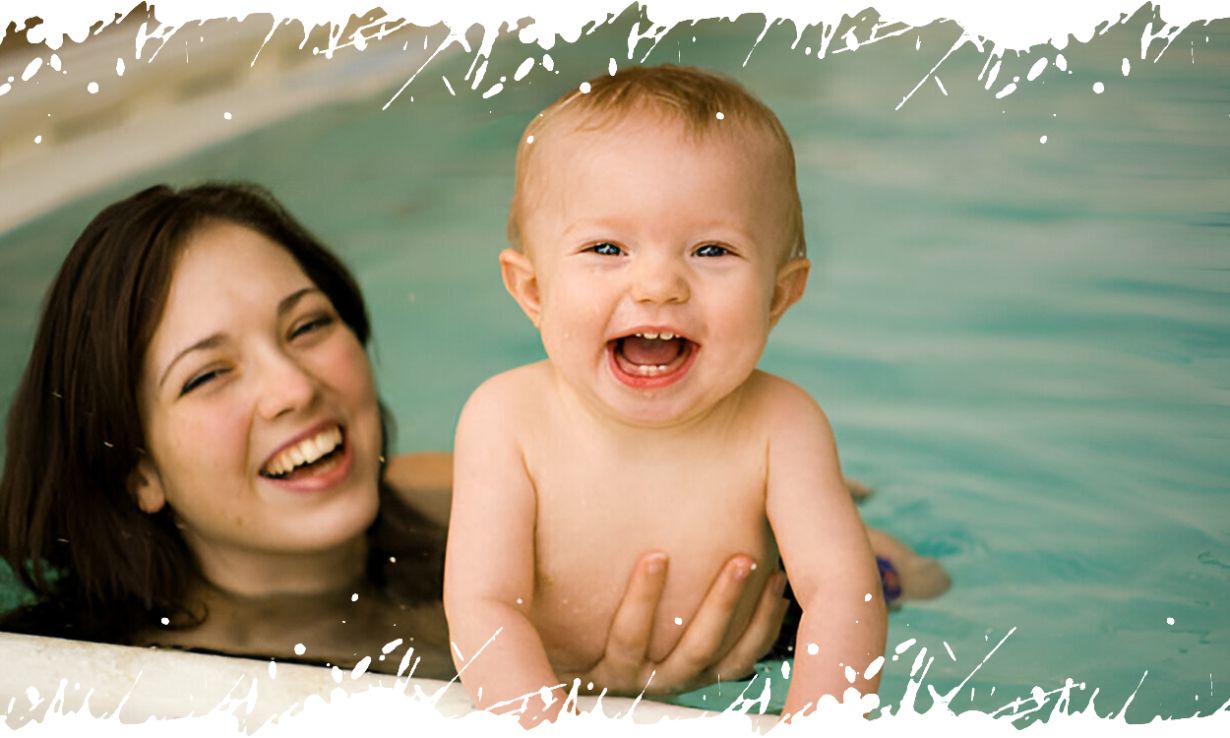
Benefits of Home Swimming Training:
- Flexible and Convenient Schedule:
You can arrange your lesson schedule according to your personal preferences and availability, without the need to adapt to traditional swim school timetables. - A Comfortable and Familiar Environment:
It allows you to experience training in a private and familiar environment, increasing your comfort and confidence during learning. - Avoid Crowds and Noise:
You avoid the crowds and noise associated with public pools or schools, making your training experience peaceful and focused. - Individual attention and direct guidance:
You will receive personalized attention and direct guidance from the instructor, enhancing your personal progress and facilitating the achievement of your swimming goals. - Saving Time and Effort:
Reduces the time and effort spent traveling to and from public pools, allowing families more time to spend together. - Customized Training Sessions:
The ability to tailor training sessions to better meet swimmers’ needs, such as session duration and educational content. - Boosting Confidence:
Providing a safe and familiar environment that helps swimmers enhance their confidence while learning to swim. - Focus on Safety:
Offering a learning environment free from potential risks associated with public pools. - Avoiding Pollution:
Minimizing exposure to potential water pollution associated with public pools. - Maintaining privacy:
Providing a private and secluded environment for swimming, avoiding exposure to public view in public pools. This is particularly beneficial for women.